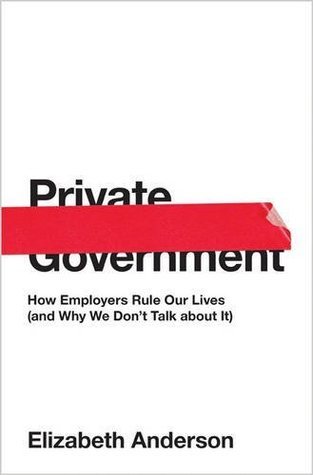What do you think?
Rate this book


196 pages, Hardcover
First published January 1, 2017
On 4/23/2024, the Federal Trade Commission (FTC) voted 3–2 along party lines to ban the noncompete agreements that prevent workers from minimum-wage earners to top executives from changing jobs within the industry in which they work; senior executives can still be bound by such agreements. Initially used to protect trade secrets, noncompete clauses have expanded to cover what the FTC estimates to be 30 million people—one in five U.S. workers. They take away workers’ ability to improve their wages and conditions by quitting their jobs and moving to another company or starting their own. The FTC estimates that the end of such clauses could add almost $300 billion a year to workers’ wages.
“Robbing people of their economic liberty also robs them of all sorts of other freedoms,” FTC Chair Lina Khan said. Neil Bradley, head of strategic advocacy for the U.S. Chamber of Commerce, countered: “If they can issue regulations with respect to unfair methods of competition, then there’s really no aspect of the U.S. economy they couldn’t regulate.” The U.S. Chamber of Commerce plans to sue over the rule. --Heather Cox Richardson, "Letters from an American" blog https://heathercoxrichardson.substack...